Kenya was the place to be on March 22-23 as the city was host to the first edition of the World Blockchain Summit Nairobi. The event was aimed at connecting cryptocurrency enthusiasts, global blockchain experts, startups and investors to discuss blockchain technology and its applications. The event was held at the Laico Regency Hotel and was attended by over two hundred delegates.
Demystifying Blockchain Technolgy and its Applications
The summit began with a keynote address from John Karanja, founder and consulting lead at BitHub Africa. The Nairobi-based startup is a blockchain accelerator that focuses on incubation of blockchain startups that are solving key challenges within Kenya and Africa. His address sought to educate the audience on the use of network-centric protocols and how blockchain technology can liberate Africa from inflation and fluctuating fiat economies.
Speaking to BitcoinAfrica.io on the sidelines of the conference, Karanja stressed that BitHub Africa has organised many meetups and events for the past two years educating young people on the potential for decentralised technologies. He explained the startup was working on creating an ecosystem for blockchain developers and teased about the launch of an academy in July, which will train developers working on financial and energy products on the blockchain.
On his thoughts about the Summit Karanja said:
“The World Blockchain Summit is a great series of conferences and my colleague Chris (BitHub Community Lead) participated in the Dubai Conference, so we partnered with [Trescon] to have the event in Nairobi Kenya. As you know, Kenya is a hotbed for innovation and we need to become leaders in blockchain technology whether we are talking about cryptocurrencies or applications on the blockchain. It is important for us to build the skills of our people and develop this space more, so the summit is great it has brought the speakers together, people from different fields including government and we need to see a lot of innovation happening in this space.”
The next speaker to take the floor was Eagle An, the co-founder and President of Bankorus, a crypto wealth management platform that uses both AI and blockchain technology. His technical presentation touched on the potential of crypto wealth management in the next few years as more investors look to diversify into digital assets but lack the necessary experience to manoeuvre the volatile markets. An asserted that China and the U.S. will be the largest crypto markets in the next five years, which bode well for Bankorus which is based in Beijing, China. Founded in 2013, the company manages assets worth $30 billion with over 200,000 of the world’s most wealthy clients.
The next presentation was from Dr Bitange Ndemo, a former ICT Permanent Secretary in the Kenyan Government and head of the recently constituted Blockchain and AI Task Force. During his speech focused on the age of digital transformation brought about mobile adoption and scaling blockchain applications for Africa, he reminded the audience that Kenya had its own version of a rudimentary cryptocurrency in the form of Bonga points. Bonga points is a loyalty scheme from the local telco Safaricom, that rewards users with points which users can redeem for airtime or data services, or use to purchase certain products.
“We are not in the business of acquiring platforms but we are in the business of setting up policies. Blockchain technology is an opportunity for Africa to leapfrog its own problems. In six months of digitisation of the lands registry, revenue jumped from 800 million to 9 billion. This is without blockchain. With blockchain, cases of corruption will decline,” he added.
The Summit proceeded to a panel discussion, which was moderated by Mir Haque, CEO and Founder of Aphaea Capital, United States. The subjects discussed were how the government and private sector can work together to harness the power of blockchain, the potential to unlock the credit market for developing world through blockchain technology and models for governments to transition to this new digital economy. The audience was treated to some light moments by Bitange Ndemo as a panellist when he said: “If Africa traded with itself, we would have so much capital in the continent. The money that flows out of Africa to be hidden in foreign countries is ten times of more than the money that comes in form of aid. I lost hope in the African Union when they developed vision 2063 when most of us will be dead.”
Another panellist, Sean Nowak, Managing Partner at Zephyr Acorn, stressed that clarity in cryptocurrency regulation in Kenya was needed to spur blockchain innovation. According to Kiprono Kittony, National Chairman, Kenya National Chamber of Commerce and Industry (KNCCI) many organisations have shied away from cryptocurrency due to lack of understanding but also the crypto unfriendly environment. Eric Mwangi, Venture Partner for the UK and Africa in Blockchain Global said: “With blockchain and cryptocurrency, we can’t run away from literal campaigns.”
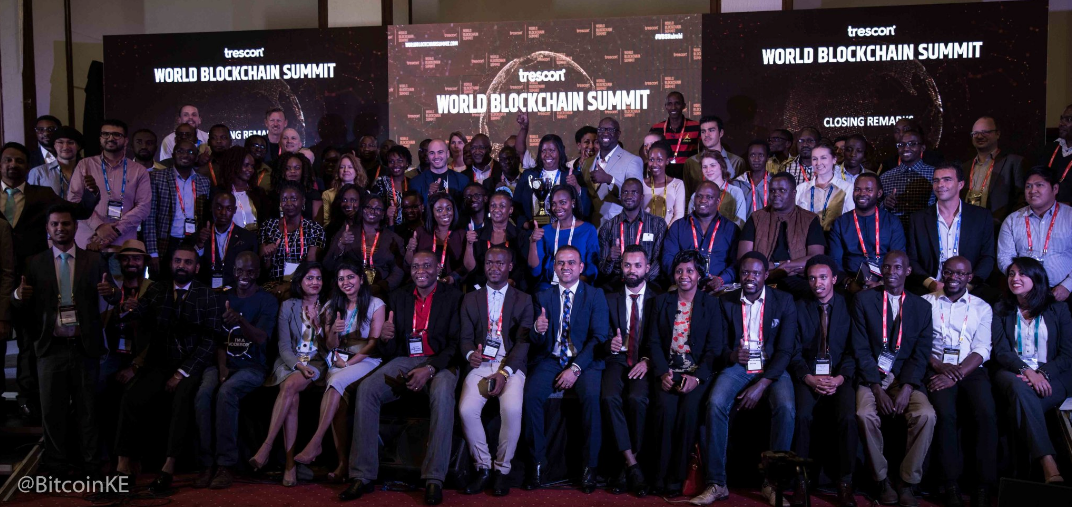
Images by BitcoinKe
This was followed shortly by another panel discussion touching on demystifying blockchain in Africa. Phoebe Musomi, Marketing and Communications Lead for Pesabase, expressed that blockchain had the ability to solve some of the challenges Africa faced when it came to financial inclusion. She shared statistics showing over 98 percent of Africans owned a mobile phone and the continent had the fastest growing internet infrastructure making an ideal breeding ground for blockchain innovation. Cedric Wachira, CTO of CedKoin explained cryptocurrency technology had the potential to replace local mobile money transfer platform MPESA since it could provide users with unlimited transactions.
However, Rosemary Koech Kimwatu, a Legal and Regulatory Specialist at Oxygene MCL, Kenya, said while blockchain technology is promising there is still need for regulation as no financial product can operate in ambiguity. She told BitcoinAfrica.io at the conference:
“I think the summit has really created insight, it is not so much about the hype around blockchain technology but people actually get to see use cases from all over the world. We have seen a land registry system and other platforms coming up [….] but I think it has really been great because it has brought down the conversation to a practical level for everyone.”
The panel discussion was moderated by Micheal Kimani, Chairman of the Blockchain Association of Kenya and included Christian Kakoba from BitHub Africa and Nikola Stojanow from CBDO, Liechtenstein. After a short networking luncheon Muhammad Salman Anjum, founder and CEO of Feelogical Solutions LLC, UAE took the panel through the evolving landscape of blockchain regulations. His speech was followed by a technical presentation from Hamid Rashid, CEO of Finterra who elaborated on his company’s social solution for blockchain.
Rashid explained to the audience about one of the company’s exciting products, the Endowment Chain, which allows participants to create project proposals to develop endowment properties. Other parties can fund these proposals by contributing funds. Once the project objectives are met the proposal is accepted and a specific number of Endowment tokens are created and distributed to the project backers.
In an interview with BitcoinAfrica.io, he talked at length about his lessons from the summit,
“Attending this event in Nairobi is an eye-opener for me. I wasn’t expecting the blockchain or crypto-scene in Africa to be this exciting. To me, this is very similar to what was happening in South East Asia almost a year ago, so I think Kenya and Africa is on the right track and I find the people here are extremely receptive of the idea [….]. They welcome this technology and are very customer oriented which is really surprising to me. They are very customer oriented even better than Malaysia or India and are willing to try since a lot of times in the Middle East people are receptive to blockchain technology but are not willing to try.”
Other notable sessions included a block chat panel discussing the impact of blockchain technology on social and economic sectors in Africa. The panel included Eugene Mutai, cryptocurrencies evangelist and miner, Stephanie Zoo from BitPesa, among others, and was moderated by BitcoinAfrica.io writer Angeline Mbogo.
The summit’s first day concluded on a positive day even topping the Twitter trend list for Kenya.
Discussing Innovative Blockchain Projects
The highlights of the second day of the conference were presentations from public figures and entrepreneurs on groundbreaking applications of blockchain technology. The day began with a keynote address from Jeff Berwick, Chief Editor of the Dollar Vigilante. He gave an insightful speech about cryptocurrencies giving power back to the consumer and bolstering financial inclusion in developing nations. The next speech was from Muhammad Arafath, the Executive Director of Apla Blockchain, which focused on how blockchain can transform governments.
In a BitcoinAfrica.io interview during the conference, Arafath explained Apla blockchain is an original blockchain platform created specifically for the case of building decentralised applications for government and corporate ecosystems.
He shared his thoughts on the summit with BitcoinAfrica.io:
“World Blockchain Summit by Trescon is doing a really fantastic job. It’s not any other blockchain conference where you pick and pull everyone to come and speak. I think they have done a good job in bringing the right mix of people. The right people in authority, the right level of information and the conference organisers have put in a lot of effort in identifying the set of topics to be spoken about…” he states.
“The biggest takeaway for me from the conference will be Africa is the biggest market for blockchain technology because when we look at developed economies they have already invested in the latest infrastructure and technology but as we know technology is always evolving,” he added.
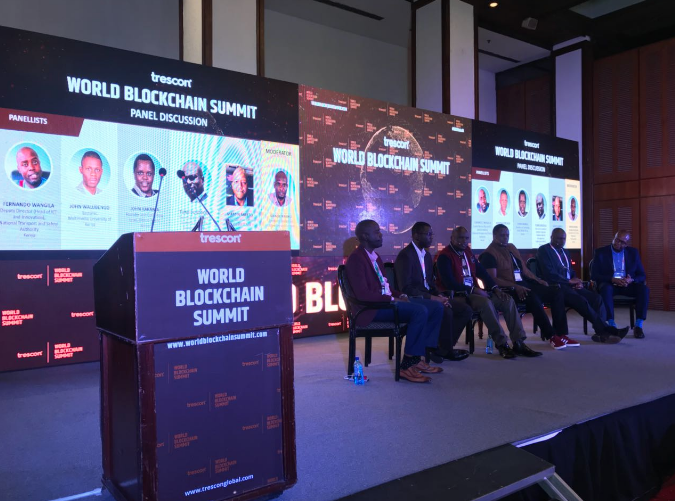
Fernando Wangila, the Deputy Director (ICT and Innovation) of the National Transport and Safety Authority (NTSA), Kenya took the floor next to deliver a keynote speech on how the blockchain is helping to change government services. He explained how the NTSA was leveraging blockchain technology to streamline traffic registration and operations. Wangila also participated in a panel discussion on the future of ICT in the African market moderated by Daniel Nyairo, a blockchain writer, with other panellists being John Karanja from BitHub and John Walubengo of the Kenya blockchain and AI taskforce.
As the conference came to close, Mithun Shetty, Trescon’s Managing Director, told BitcoinAfrica.io:
“The Dubai edition was Middle East’s biggest blockchain summit when we did it last year and moving on this year we are doing this blockchain summit in ten different cities all over the world. This is the first leg in Nairobi and it has already become Africa’s biggest blockchain summit. So it’s great to see the level of participation from all different kinds of people, sectors and governments, people coming from the corporate world, startups and regular people who are interested in blockchain and want to learn more.”
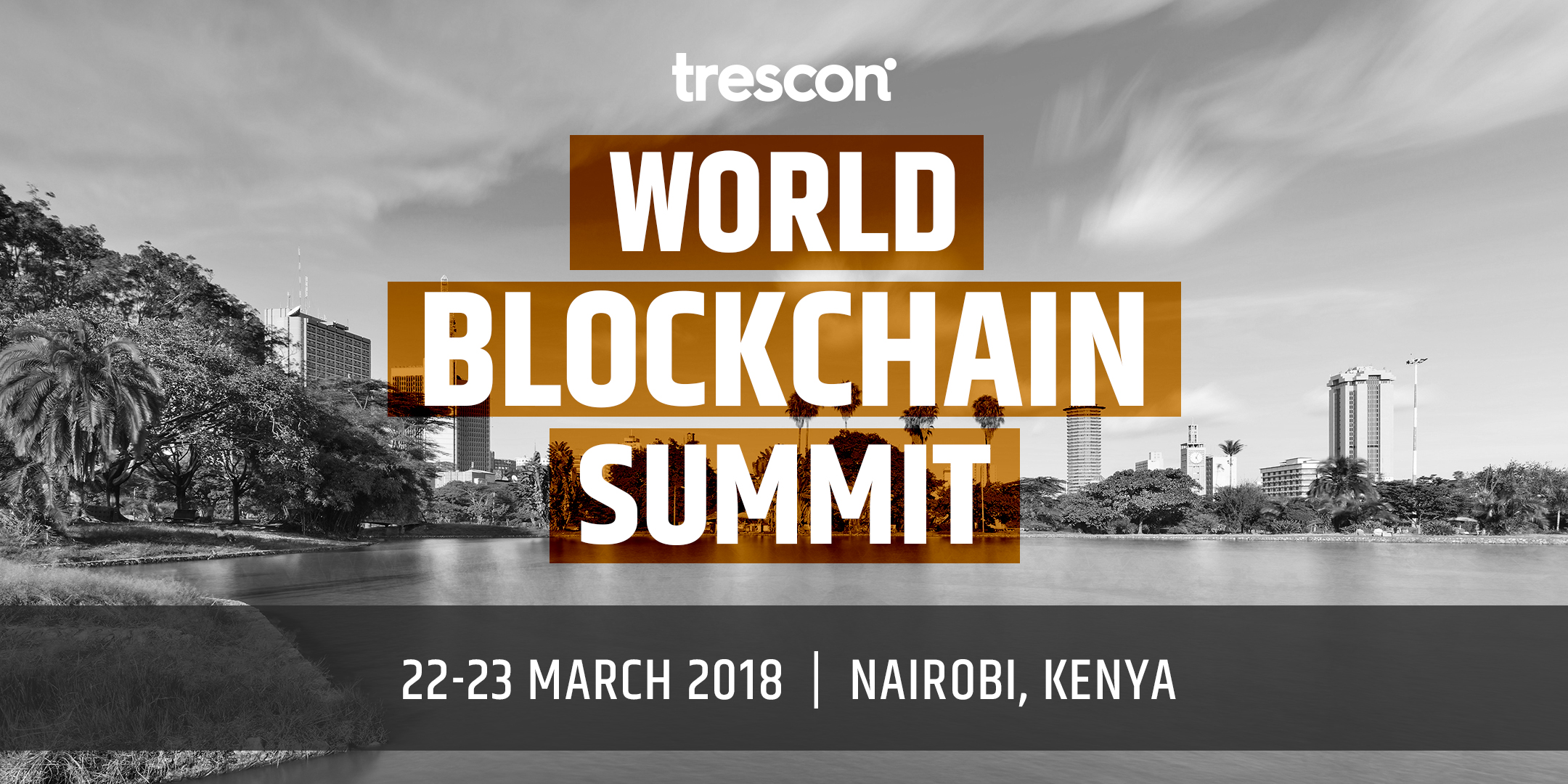

 Features3 years ago
Features3 years ago
 Bitcoin2 years ago
Bitcoin2 years ago
 Features3 years ago
Features3 years ago
 Features3 years ago
Features3 years ago
 Features3 years ago
Features3 years ago
 Features3 years ago
Features3 years ago
 Features8 months ago
Features8 months ago
 Bitcoin10 months ago
Bitcoin10 months ago






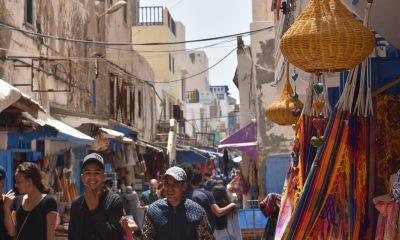



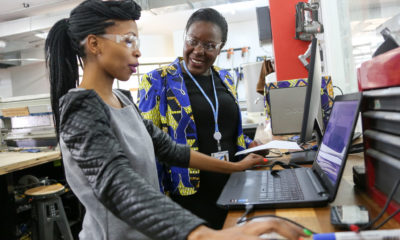



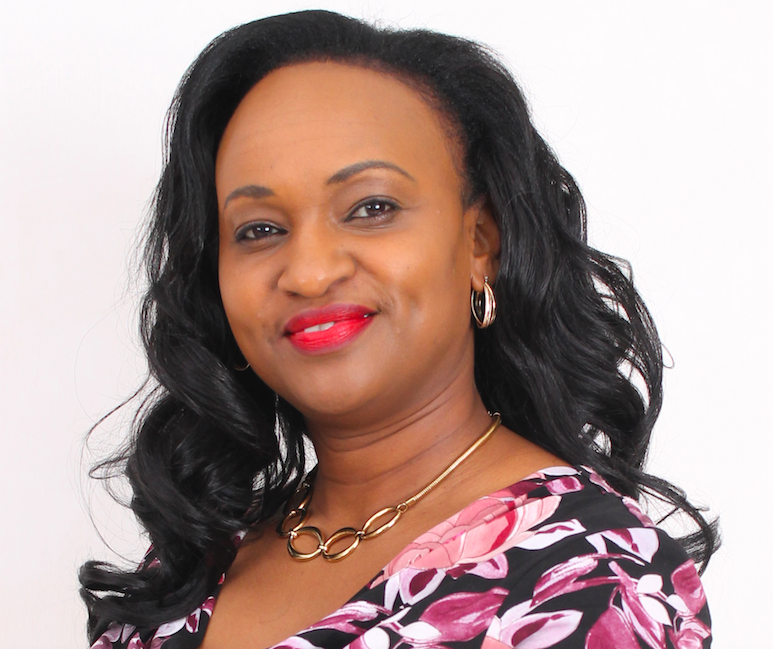
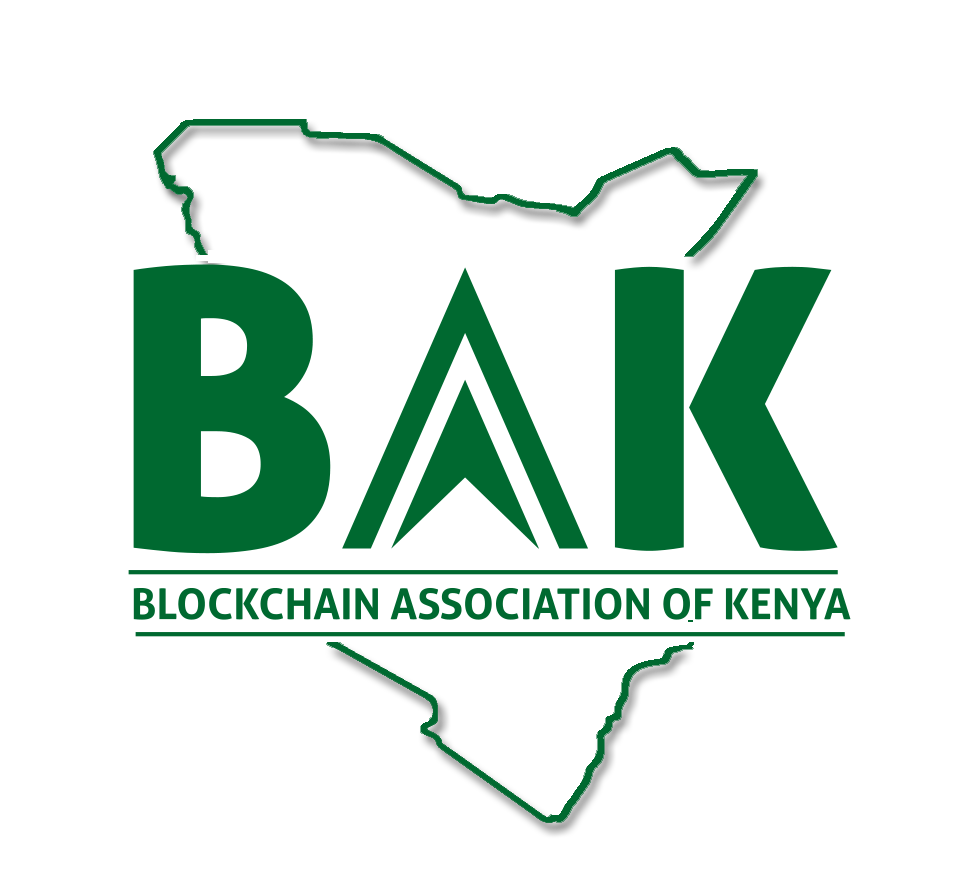 Since it was registered in 2017 as a non-profit, the
Since it was registered in 2017 as a non-profit, the 

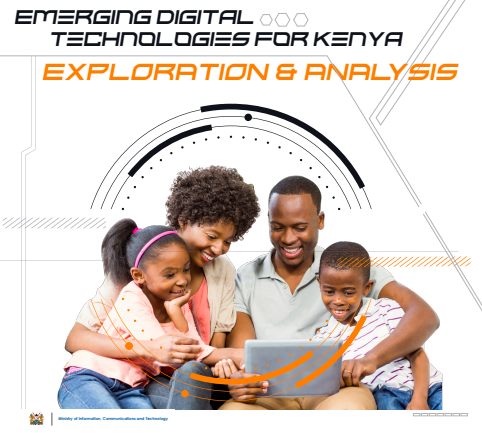
 Some of the target implementation areas for blockchain and AI include the Ministry of Lands, Huduma Centres where important documents are issued, and the Ministry of Transport.
Some of the target implementation areas for blockchain and AI include the Ministry of Lands, Huduma Centres where important documents are issued, and the Ministry of Transport.
